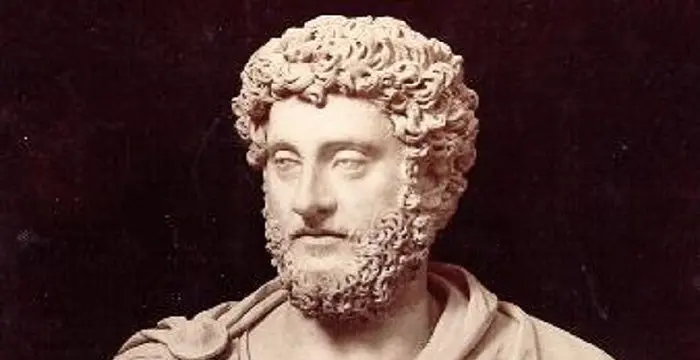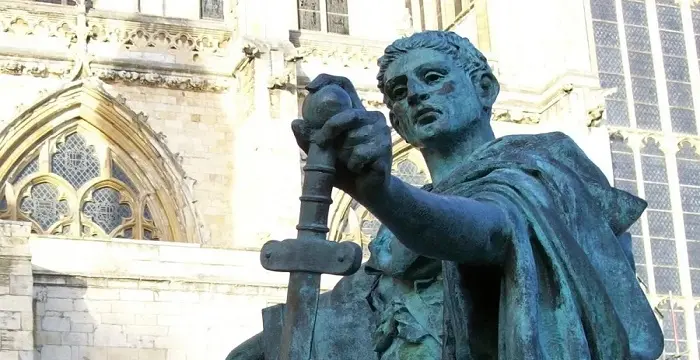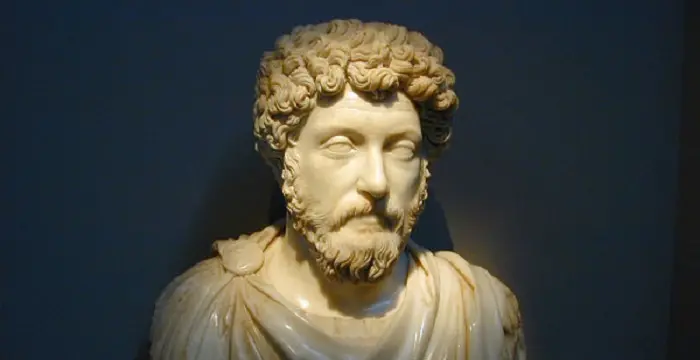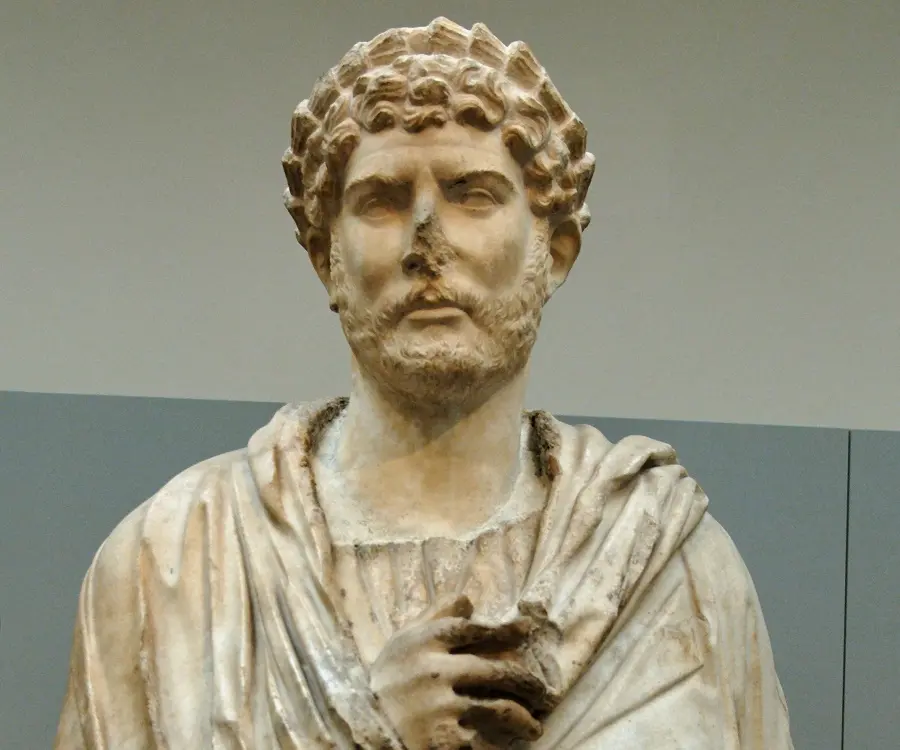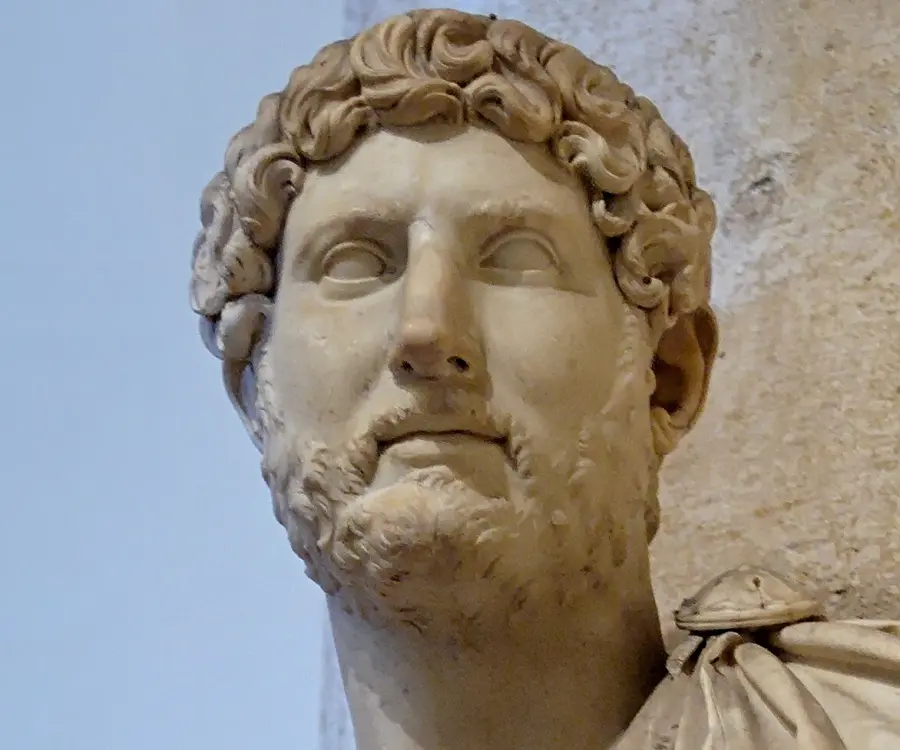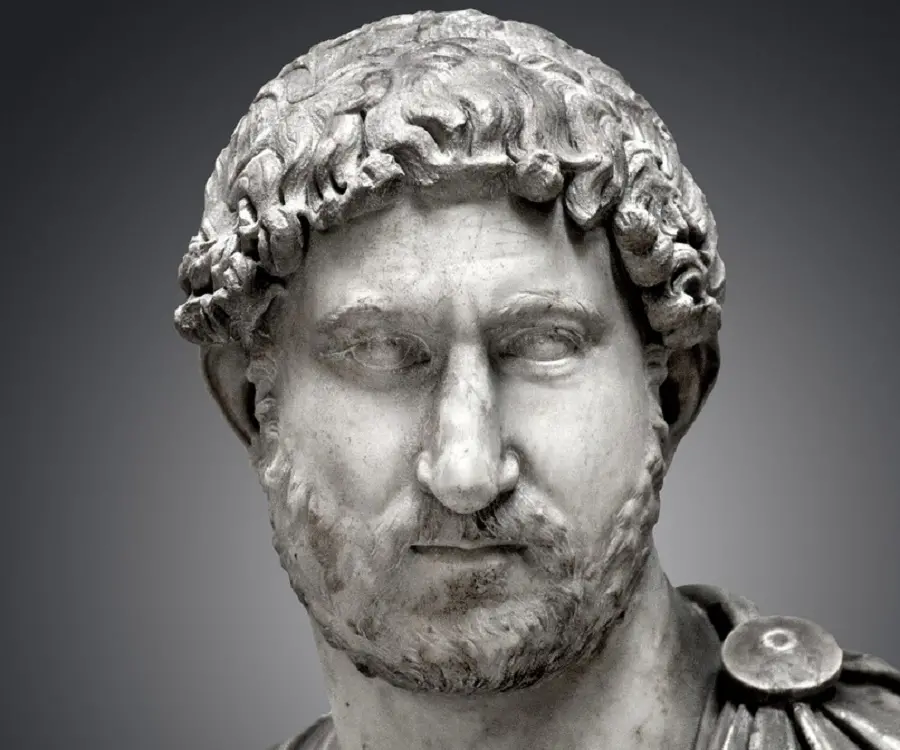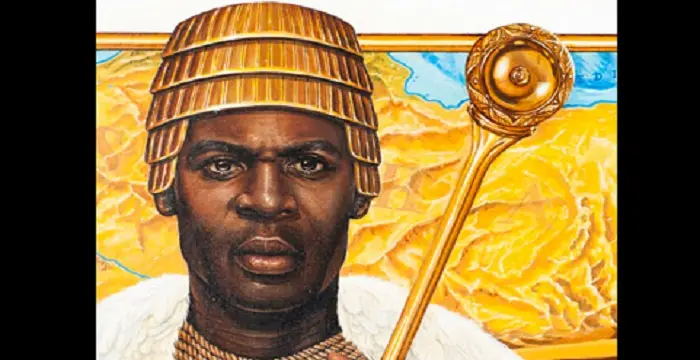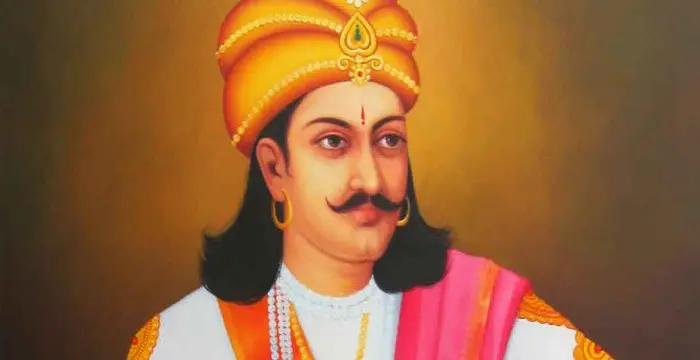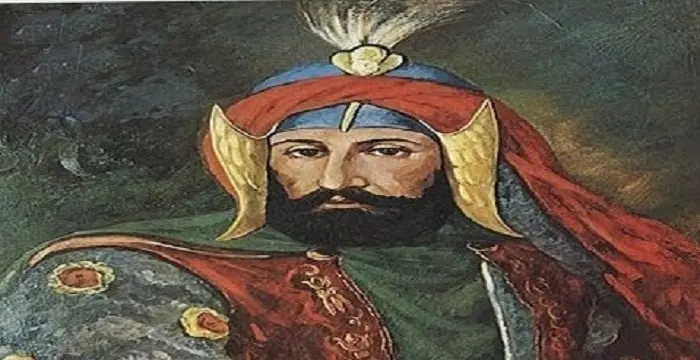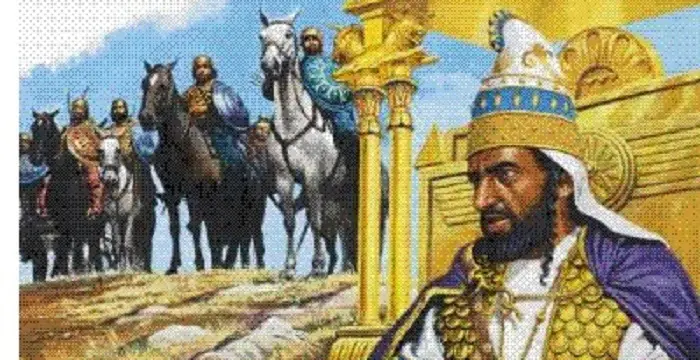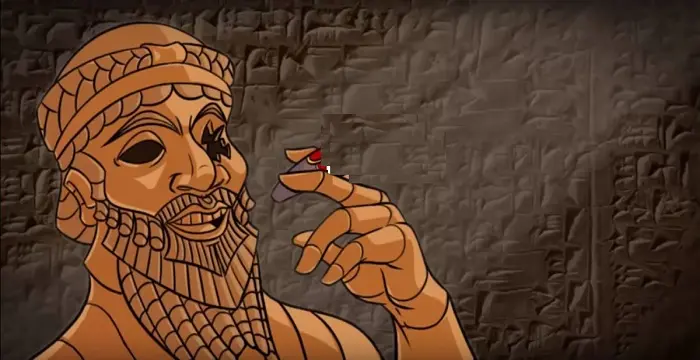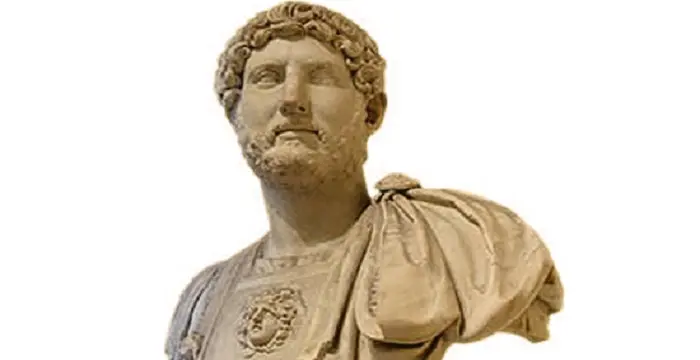
Hadrian - Emperors, Birthday and Childhood
Hadrian's Personal Details
Hadrian was Roman emperor from 117 to 138
| Information | Detail |
|---|---|
| Birthday | January 24, 1976 |
| Died on | July 10, 138 |
| Nationality | Italian |
| Famous | Historical Personalities, Emperors & Kings, Emperors, Kings, Roman Emperor |
| Spouses | Vibia Sabina (m. 100 AD–136 AD) |
| Siblings | Paulina Minor |
| Known as | Publius Aelius Hadrianus, Publius Aelius Hadrianus Buccellanus |
| Founder / Co-Founder |
|
| Birth Place | Italica, Hispania |
| Religion | Paganism |
| Gender | Male |
| Father | Publius Aelius Hadrianus Afer |
| Mother | Paulina |
| Sun Sign | Aquarius |
| Born in | Italica, Hispania |
| Famous as | Roman Emperor |
| Died at Age | 62 |
// Famous Roman Emperor
Commodus
Commodus (Lucius Aurelius Commodus) was a Roman emperor during the early years of the first millennium. This biography provides detailed information about his childhood, family, rule, life history, achievements, death etc.
Constantine the Great
Constantine the Great was a Roman Emperor of Illyrian ancestry who ruled from 306 to 337 AD. This biography of Constantine the Great provides detailed information about his childhood, life, achievements, works & timeline
Marcus Aurelius
Marcus Aurelius was one of the most cherished Roman emperors in history. Go through this article to learn more about his profile, childhood, life and timeline.
Hadrian's photo
Who is Hadrian?
Publius Aelius Hadrianus, better known as Hadrian, was the Emperor of Rome from 117 to 138. He belonged to an aristocratic Roman family with roots in Italica, Hispania. After the death of his father, he was brought up by Emperor Trajan of Rome who was his father’s cousin. He started his administrative career as a minor magistrate and went on to do three tenures in the army to gain military experience. Later, he was elected to the senate and became a member of the Emperor’s personal entourage. He was close to Empress Plotina and got married to her grand-niece, which qualified him to succeed Trajan after his death. Unlike his predecessors, he did not expand the Roman Empire, but consolidated his kingdom and brought in peace and prosperity. He built monuments and developed art and culture. The Hadrian wall, which protected his kingdom from the barbarians and his autobiography are noteworthy. He had no children of his own and was openly gay, due to which he had to adopt his successor. Though his rule was marred by controversies, he has gone down in history as one of Rome’s good Emperors.
// Famous Emperors
Sundiata Keita
Sundiata Keita was the founder of the Mali Empire in West Africa. This biography profiles his childhood, early life, struggles, founding of empire, rule, administration, achievements and also gives some fun facts.
Ashoka
Ashoka was the third emperor of the Mauryan Dynasty and ruled almost the entire Indian subcontinent. This biography profiles his childhood, life, reign, achievements and timeline
Murad IV
Murad IV was one of the mighty Sultans in the history of the Ottoman Empire. This biography profiles his childhood, family, accession, rule, administration and timeline.
Childhood & Early Life
Hadrian was born on 24 January 76 in Italica, Hispania into the ‘Nervan-Antonine’ dynasty, which was a well established Roman family with roots in Italica, Hispania, Baetica, near modern day Seville, Spain. (As per some historians he was born in Rome).
His father, Publius Aelius Hadrianus Afer Trajan, was the cousin of Emperor Trajan and a senator of ‘Praetorian’ rank who spent most of his time in Rome. His mother, Domitia Paulina, belonged to a distinguished Hispano – Roman senator family from Gades, Spain. His elder sister, Aelia Domitia Paulina, was his only sibling.
His parents died when he was 10 years old and he became a ward of both Emperor Trajan and Publius Acilius Attianus who was Trajan’s ‘Praetorian Perfect’. Young Hadrian moved to Rome at the age of 14 where he was given an aristocratic upbringing and taught various subjects. He was fond of Greek literature and got the nickname ‘Graeculus’.
Career
He started his career as a ‘Vigintivirate’, which is a minor magistrate in the inheritance court. At the age of 19 he did his first military service as a tribune on the ‘Legio II Adiutrix’ of the Roman army. He was later transferred to the ‘Legio V Macedonica’. He had yet another spell of military service in the tribunate of ‘Legio XXII Primigenia’, which gave him the distinction of having exceptional military experience.
In the year 101, Hadrian was elected as a ‘Quaestor’, which was the beginning of his career in the Senate. His first task was to read the speeches of the Emperor. Later, he was appointed ‘ab actis senatus’ and was assigned the responsibility of keeping a record of the proceedings of the Senate.
Hadrian was a member of Trajan’s personal entourage during the First Dacian War. After the war he was elected as a ‘Praetor’ and given charge of an army. He rose to be a Legate of ‘Legion – Legio I Minervia’, which was the equivalent of the rank of a General, during the Second Dacian War.
After the war he was appointed governor of the province, Lower Pannonia, which was considered to be a high ranking post for someone his age. Legend has it that during this period Trajan handed over a ring to Hadrian that was given to him by his predecessor, which was a signal of succession.
When Trajan was seriously ill and had to return to Rome. Hadrian stayed back in Syria to guard the Roman rear. Thus, he became the de-facto commander of the Eastern Roman army. Trajan passed away in Selinus and Empress Plotina signed the succession document transferring power to Hadrian.
Accession & Administration
The accession to the throne was not smooth for Hadrian as Trajan had not personally signed any document to transfer power to him. He was relatively junior to other senators who also had ambitions for the throne. However, he had the support of the army and his competitors were eliminated while he was consolidating power in the East.
Hadrian did not follow an expansionist policy as an Emperor. He believed in peace and consolidation of his empire. He gave up Mesopotamia in the East and built the famous Hadrian Wall in Britannia to safeguard his territory.
He devoted a lot of his time and effort to revive art and architecture in his kingdom. He built his villa with landscaped gardens and went about renovating monuments that had been destroyed due to war or natural calamities. He also personally wrote Latin and Greek poetry and an autobiography titled ‘Phlegon of Tralles’.
One of the most distinctive aspects about Hadrian’s rule was that he spent a lot of time travelling around his empire. Unlike most Emperors before him who left Rome only to conquer land, he visited his subjects and worked towards establishing peace and prosperity.
During his travels he was accompanied by architects who rendered advice on constructing new buildings or renovating ruins. He also negotiated peace within his kingdom and with his neighbours. A glaring example is the peace settlement with the Parthian King, Osroes, when he visited Euphrates.
He toured Greece in the year 124-125 and participated in the religious rights of ‘Eleusinian Mysteries’. He revised the constitution of Athens and initiated the construction of many monuments.
In his reign from 117 to 138, Hadrian earned the reputation of being a good administrator and a humanist. He brought in legal reforms to define the law and not leave it to the interpretation of senators.
Hadrian wrote poetry and his biography titled ‘Phlegon of Tralles’.
He built many monuments, including his villa and tomb. The Hadrian wall is one of the first of its kind defence structure.
Personal Life & Legacy
He married Vibia Sabina who was the grand-niece of Emperor Trajan on the behest of Empress Plotina, after the death of her husband. Plotina and Hadrian shared philosophical interest and got along well. However, Trajan was not enthusiastic about the marriage that was more for convenience as Hadrian and Sabina did not get along well and had no children of their own.
Hadrian was the first Roman Emperor to make it known publicly that he was gay. His companion, Antinous, accompanied him on all his travels and finds mention in Hadrian’s poetry. He even named a Greek city after him when he died a premature death due to drowning.
Since he had no children of his own, he adopted Aellius Caesar who unfortunately died so he again adopted Titus Aurelius Fulvus Boionius Arrius Antoninus who went on to become Emperor after Hadrian died on 10th July 138 AD at the age of 62.
Trivia
Hadrian had an interest in astrology and divination and had been told of his accession to the throne by his grand uncle.
When Hadrian fell out with Emperor Trajan he tried to make amends with the Emperor by indulging in heavy drinking with him.
He was a great hunter and brought the beard back into fashion in Rome.
He is responsible for laying the foundation of the Byzantine Empire and changed the name of Judea to create Palestine.
// Famous Kings
Sundiata Keita
Sundiata Keita was the founder of the Mali Empire in West Africa. This biography profiles his childhood, early life, struggles, founding of empire, rule, administration, achievements and also gives some fun facts.
Ashoka
Ashoka was the third emperor of the Mauryan Dynasty and ruled almost the entire Indian subcontinent. This biography profiles his childhood, life, reign, achievements and timeline
Murad IV
Murad IV was one of the mighty Sultans in the history of the Ottoman Empire. This biography profiles his childhood, family, accession, rule, administration and timeline.
Hadrian biography timelines
- // 24th Jan 76Hadrian was born on 24 January 76 in Italica, Hispania into the ‘Nervan-Antonine’ dynasty, which was a well established Roman family with roots in Italica, Hispania, Baetica, near modern day Seville, Spain. (As per some historians he was born in Rome).
- // 117 To 138In his reign from 117 to 138, Hadrian earned the reputation of being a good administrator and a humanist. He brought in legal reforms to define the law and not leave it to the interpretation of senators.
- // 124 To 125He toured Greece in the year 124-125 and participated in the religious rights of ‘Eleusinian Mysteries’. He revised the constitution of Athens and initiated the construction of many monuments.
- // 10th Jul 138Since he had no children of his own, he adopted Aellius Caesar who unfortunately died so he again adopted Titus Aurelius Fulvus Boionius Arrius Antoninus who went on to become Emperor after Hadrian died on 10th July 138 AD at the age of 62.
// Famous Emperors & Kings
Sundiata Keita
Sundiata Keita was the founder of the Mali Empire in West Africa. This biography profiles his childhood, early life, struggles, founding of empire, rule, administration, achievements and also gives some fun facts.
Ashoka
Ashoka was the third emperor of the Mauryan Dynasty and ruled almost the entire Indian subcontinent. This biography profiles his childhood, life, reign, achievements and timeline
Murad IV
Murad IV was one of the mighty Sultans in the history of the Ottoman Empire. This biography profiles his childhood, family, accession, rule, administration and timeline.
Xerxes I
Xerxes I (Xerxes the Great) was the fourth and the most famous king of the Archaemenid dynasty of Persia. This biography profiles his childhood, family, personal life, life history, achievements, campaigns, administration, death and other facts.
Sargon of Akkad
Sargon of Akkad, also called ‘Sargon the Great’, ‘Sarru-Kan’ and ‘Shar-Gani-Sharri’, was the founder and first king of the Akkadian Empire. This biography profiles his childhood, life, rule, administration, timeline, and gives some fun facts.
Abdullah of Saudi Arabia
Abdullah bin Abdulaziz Al Saud was the King of Saudi Arabia from 2005 to 2015 and the third wealthiest head of state in the world. Find more facts about his life, childhood and timeline.
Hadrian's FAQ
What is Hadrian birthday?
Hadrian was born at 1976-01-24
When was Hadrian died?
Hadrian was died at 0138-07-10
Where was Hadrian died?
Hadrian was died in Baiae
Which age was Hadrian died?
Hadrian was died at age 62
Where is Hadrian's birth place?
Hadrian was born in Italica, Hispania
What is Hadrian nationalities?
Hadrian's nationalities is Italian
Who is Hadrian spouses?
Hadrian's spouses is Vibia Sabina (m. 100 AD–136 AD)
Who is Hadrian siblings?
Hadrian's siblings is Paulina Minor
Which company or organization was founded by Hadrian?
Hadrian was the founder/co-founder of Panhellenion
What is Hadrian's religion?
Hadrian's religion is Paganism
Who is Hadrian's father?
Hadrian's father is Publius Aelius Hadrianus Afer
Who is Hadrian's mother?
Hadrian's mother is Paulina
What is Hadrian's sun sign?
Hadrian is Aquarius
How famous is Hadrian?
Hadrian is famouse as Roman Emperor
